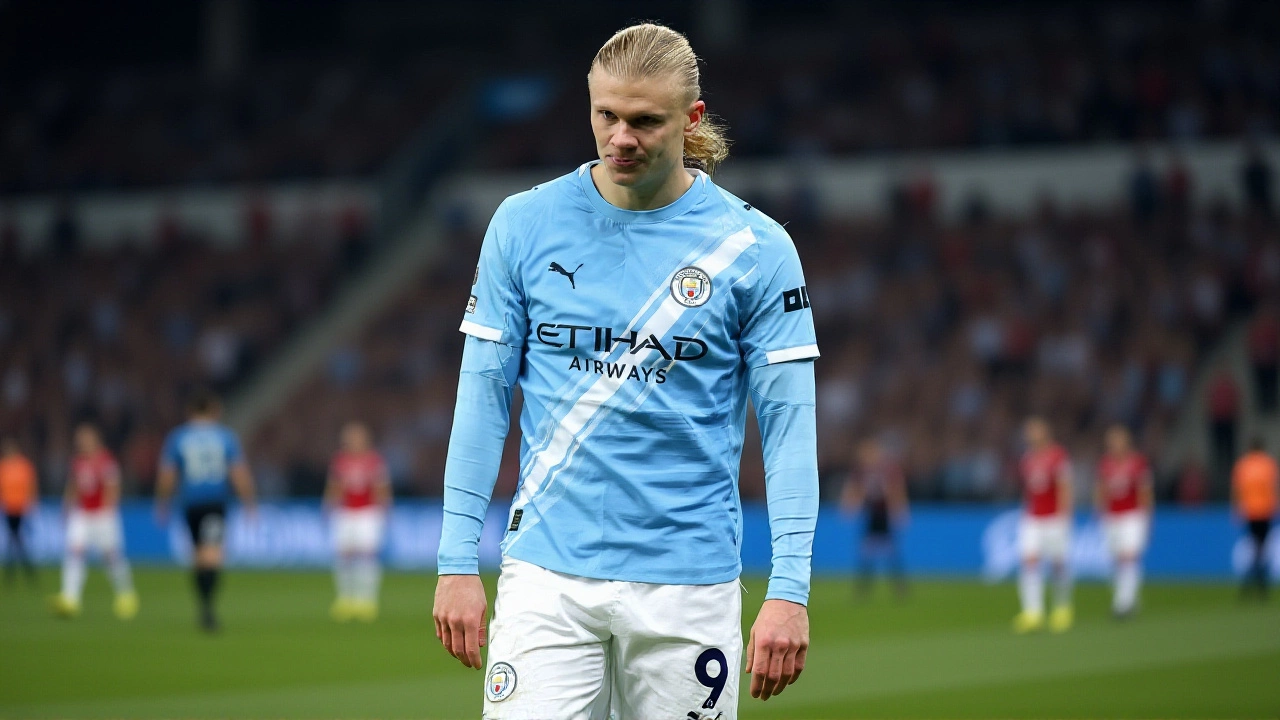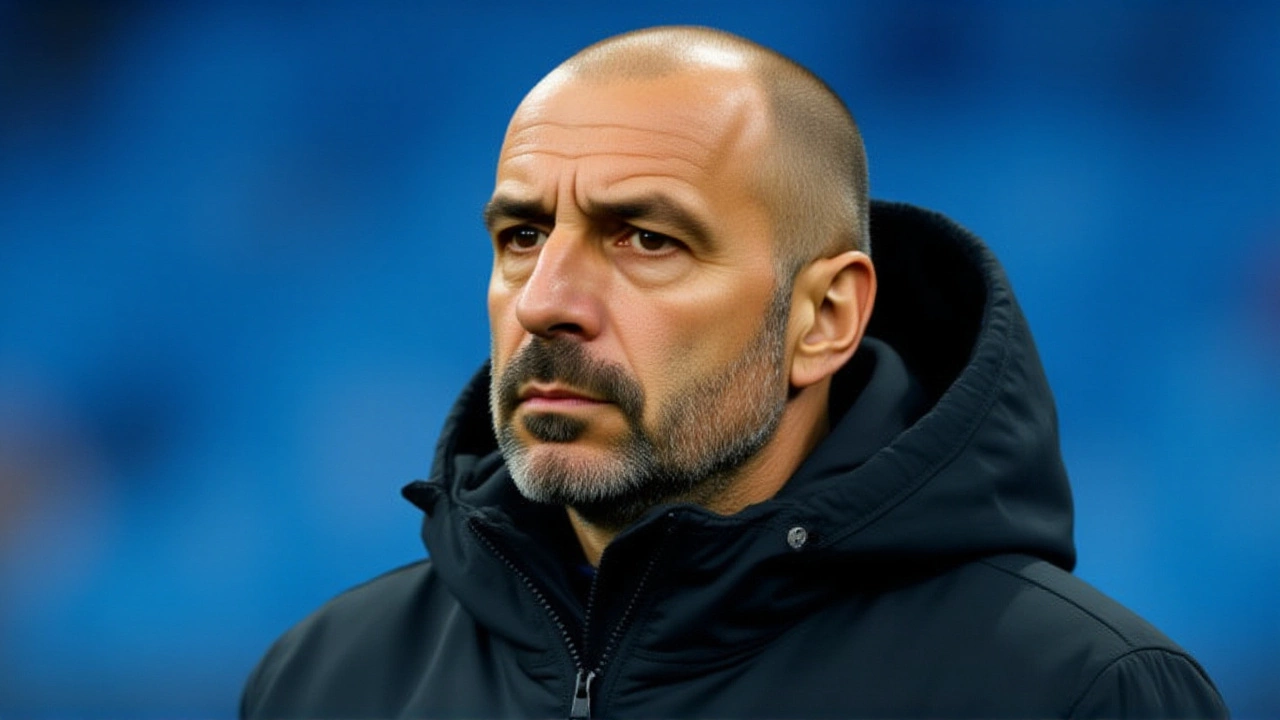When Manchester City Football Club lost 2-0 at home to Bayer 04 Leverkusen on Tuesday, November 26, 2025, it wasn’t just a defeat — it was a reckoning. The match, played at the Etihad Stadium in Manchester, ended with Pep Guardiola staring at his first Champions League home loss in over three years, and his most radical lineup gamble yet — 10 changes from the previous Premier League match — backfiring spectacularly. The Norwegian striker Erling Braut Haaland, who had netted 22 goals this season, didn’t even start. Neither did Kevin De Bruyne, Rodri, or Bernardo Silva. And it showed.
What Went Wrong?
Guardiola’s decision to rotate so heavily came after a 2-1 loss to Newcastle United on Sunday, November 24, 2025, a result that had already rattled the club’s confidence. With a congested fixture list and the Premier League title still in play, he opted for rest and rotation — but went too far. The starting XI featured fringe players like Omar Marmoush, Jérémy Doku, and Rico Lewis, while key midfield anchors were missing. Bayer 04 Leverkusen, by contrast, fielded a near-full-strength side, hungry to prove they belonged among Europe’s elite.It didn’t take long for the gulf in quality to show. In the 23rd minute, Alejandro Grimaldo — Leverkusen’s electric left-back — cut inside from the flank and fired a low, curling shot past goalkeeper Stefan Ortega. The goal wasn’t fluky. It was the product of precise movement, exploiting gaps left by City’s disjointed backline.
At halftime, Guardiola knew something was wrong. He made three changes — bringing on Haaland, Phil Foden, and Matheus Nunes — but it was too late. In the 54th minute, Patrik Schick rose above Manuel Akanji to head home a cross from Florian Wirtz. City had 65% possession, but only eight shots. Leverkusen had 14 — and three were on target.
"It Was Too Much"
In the post-match press conference, Guardiola didn’t deflect blame. "I take absolutely full responsibility," he said, his voice heavy. "It was the first time in my life I’ve done it — and it was too much." He didn’t mention Haaland by name, but the implication was clear: the team’s identity had been stripped away. "Everybody thinks with Erling, Bernie and the others we should be better, but I don’t have the answers. We cannot play Erling all the time for 95 minutes."That last line is telling. Guardiola has spent years building a system where rotation is strategic, not desperate. But this wasn’t rotation — it was abandonment. Former City midfielder Michael Brown put it bluntly on Twitter: "You don’t dismantle a machine to fix a scratch. You tune it."

The Bigger Picture
This defeat marks Manchester City’s fifth loss in all competitions this season — their worst start to a campaign under Guardiola. Their Champions League record now stands at four wins and one loss, but with Real Madrid Club de Fútbol looming next month, they’re in danger of slipping from top spot in Group D. A loss to Madrid could mean a playoff tie against a team like Bayern Munich or Paris Saint-Germain — a nightmare scenario for a club that’s dominated European football for the past decade.Meanwhile, Bayer 04 Leverkusen — once seen as a mid-table Bundesliga side — now sit at 5-0 in the Champions League. Their coach, Kasper Hjulmand, didn’t gloat. "No matter who they put on the pitch, it’s a quality team," he said. "We did well."
That’s the quiet confidence of a team that’s found its rhythm. Leverkusen’s 2025-26 campaign has been a masterclass in cohesion. They’ve lost just once in all competitions — to RB Leipzig in August — and their midfield trio of Florian Wirtz, Jonathan Tah, and Granit Xhaka is among the most balanced in Europe.
Why This Matters Beyond the Pitch
The fallout extends beyond the standings. Manchester City’s board, led by chairman Khaldoon Al Mubarak, has invested heavily in maintaining a winning culture. But this loss exposes a dangerous vulnerability: over-reliance on a few stars, and a coaching staff that may be losing touch with when to trust the system.Guardiola’s rotation philosophy once made City untouchable. Now, it’s being questioned. In the Premier League, where consistency is king, losing back-to-back games — especially at home — can cost you a title. Last season, a similar dip in form in late November led to City’s first league title defense collapse since 2018. History doesn’t repeat, but it rhymes.
Meanwhile, Leverkusen’s rise is a reminder that football is no longer just about money. It’s about culture, structure, and belief. Their stadium, the BayArena in Leverkusen, Germany, holds 30,000 fans — a fraction of the Etihad’s 55,000 — yet they play with more conviction.

What’s Next?
Manchester City’s next match is a crucial Premier League clash against Arsenal on December 1, 2025. But the real test comes on January 15, 2026, when they face Real Madrid Club de Fútbol in the Champions League. If Guardiola doesn’t find a way to restore balance — between rest and intensity, between stars and system — the dream of a third straight European crown may already be slipping away.Frequently Asked Questions
Why did Guardiola make 10 changes in such a big match?
Guardiola cited fixture congestion and a desire to rest key players after a 2-1 loss to Newcastle. But experts like Republic World’s Jishu Bhattacharya noted that 5.5 changes is the typical threshold for Champions League rotation — 10 is extreme. He later admitted it was his first time going that far, calling it "too much."
How did Haaland’s absence impact the team?
Haaland’s absence removed City’s primary threat in the box and disrupted the entire attacking structure. Without him, Leverkusen’s defense could focus on pressing midfielders and cutting passing lanes. City’s 8 shots were mostly from distance, with none coming from inside the six-yard box — a stark contrast to their usual dominance.
Is this loss a sign of Guardiola’s decline?
Not necessarily. Guardiola still has the best win rate in Champions League history among managers with 100+ games. But this loss reveals a new challenge: adapting to modern football’s physical demands while maintaining tactical identity. The issue isn’t skill — it’s timing and trust.
What does this mean for Manchester City’s Premier League title hopes?
It’s a serious blow. With 12 points from 9 games, City are now 5 points behind leaders Arsenal. Losing back-to-back games — especially at home — is a luxury they can’t afford. Their next five matches include Arsenal, Liverpool, and Real Madrid. One more slip, and the title race could be over before Christmas.
Why is Bayer 04 Leverkusen performing so well?
They’ve built a team based on continuity, youth development, and tactical discipline. Unlike City, they’ve lost only once this season. Their coach, Kasper Hjulmand, has instilled a high-pressing, possession-based style that suits their squad’s energy. They’re not just lucky — they’re well-organized.
What’s the historical significance of this match?
It was Guardiola’s 100th Champions League game managing an English club — a milestone that usually signals dominance. Instead, it marked his first home defeat in the competition since 2022. It’s also Leverkusen’s first ever win over Manchester City in competitive football, and their first 5-0 start in Champions League history.
